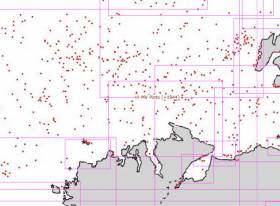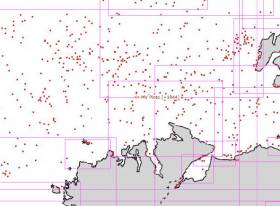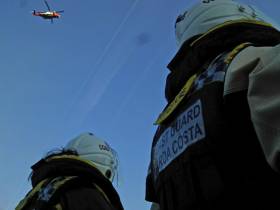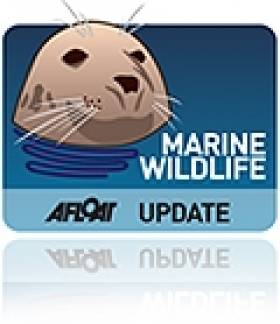Displaying items by tag: Fanad
Inquests In Donegal Deal With Separate Diving Tragedies
A Canadian national who died on a diving expedition off Donegal in 2017 was one of two separate diving tragedies in the region within weeks of each other, as RTÉ News reports.
As reported at the time on Afloat.ie, the body of a man in his 60s was recovered on 14 August 2017, two days after he went missing while on a dive to the wreck of the Pinto north of Fanad.
An inquest into the death of Randy McNalley (63) took place yesterday (Wednesday 13 February) at the Coroner’s Court in Letterkenny, which heard that the experienced diver and triathlete died of lack of oxygen — but this was likely the result of a health condition rather than a failure of his equipment.
A separate inquest on the same day dealt with the circumstances surrounding the death of British diver John Allwright (57), who was sucked into a side cave during a ‘swim-through’ of a cavern at Sheephaven Bay on 28 July 2017.
RTÉ News has more on the story HERE.
Body Recovered In Search For Diver Off Donegal
#Diving - The body of a diver missing off the Donegal coast since Saturday was recovered yesterday (Monday 14 August), according to Canada’s Globe and Mail.
The deceased, a Canadian citizen believed to be in his 60s and who has not yet been named, was found near the wreck of the Pinto, a convoy rescue ship sunk by a German U-boat on 8 September 1944.
As previously reported on Afloat.ie, the man had been diving with a group north of Fanad when he disappeared on Saturday afternoon (12 August).
Ireland is a popular destination for wreck divers, with a number of shipwrecks of historical significance dotted around the coast.
Coastguard In Ongoing Search For Missing Diver Off Donegal
#Coastguard - Sligo’s Irish Coast Guard helicopter Rescue 118 is involved in an ongoing multi-agency search for a diver missing since yesterday afternoon (12 August) off the Donegal coast.
According to TheJournal.ie, the man was part of a group diving wrecks north of Fanad when he disappeared and his colleagues raised the alarm.
Searching resumed this morning (Sunday 13 August) in tandem with Lough Swilly RNLI’s all-weather lifeboat and a number of local vessels.
In other recent coastguard news, Rescue 118 was tasked on Thursday (11 August) to the rescue of a canoeist stranded in the water for four hours in Lough Conn, as The Irish Times reports.
The alarm was raised by two children shortly after they had gone out on the canoe with the man, and managed to swim back to shore after they ended up in the water.
After an exhaustive search of the lough in fading light, the man was found around 10pm and recovered with signs of mild hypothermia – though a coastguard member said his condition could have been worse if the incident occurred in colder conditions.
Thursday (10 August) also saw two callouts for the Irish Coast Guard’s Achill Island unit, the first of which was to a casualty who had fallen from a horse on Keel sandy banks.
Due to the suspected serious nature of the injuries, Rescue 118 was dispatched from its Sligo base to airlift the casualty to hospital.
Meanwhile, the Achill unit assisted paramedics in preparing the casualty for the airlift as well as preparing and securing a landing site for the helicopter.
The second callout was to assist the same National Ambulance Service crew when they were tasked to a suspected stroke.
Again the team assisted packaging the casualty and preparing and securing the GAA pitch in Achill Sound for the Irish Air Corps’ Medevac 112 HEMS helicopter.
Elsewhere, the Shannon-based helicopter Rescue 115 was tasked on Wednesday (9 August) for a medevac from Great Blasket Island.
The patient had to be winched on board the helicopter via a stretcher lift due to the rugged terrain that prevented a landing, before being flown to Tralee University Hospital for treatment.
And previously, Killaloe Coast Guard was tasked last Saturday afternoon (5 August) to assist a jet ski that had broken down on Lough Derg.
A safety vessel from UL Activity Centre which was on exercise in the area had taken the personal water craft in tow until the coastguard crew arrived. The jet ski was then taken back to Ballina slip where it was removed from the water.
Man Dies After Fall At Fanad Lighthouse
#Fanad - TheJournal.ie reports on the death of a man in his 60s who fell into the water at Fanad Lighthouse in Co Donegal.
The man was believed to be photographing the area when he slipped on a rock and fell into a gulley, which coastguard boats from Lough Swilly had difficulty accessing due to strong winds.
TheJournal.ie has more on the story HERE.
Dolphins 'Say Thank You' After Fish Farmer Rescue
#MarineWildlife - Two dolphins saved from stranding on a beach in Donegal leapt from the water "as if to say thank you" after their rescue by a local fish farmer.
The Belfast Telegraph reports that salmon farmer Shea Coyle and his father Michael acted quickly after noticing what at first looked like two upturned surfboards on Downings beach near Fanad.
But what looked from afar like surfboard fins turned out to be the fins of two dolphins that had become trapped in the sand.
Shea described how the dolphins were "trying desperately to wriggle free" before he leant a hand to heave them back into the water.
"After about 10 minutes I got one dolphin safely out into deeper water and he stayed there whilst I got to work on the other."
Once the second dolphin was free, the pair "just took off" - and were later seen by the Coyles from a nearby peer, giving what might just have been a show of thanks.
The happy story in Donegal occurred not long after a series of dolphin and whale strandings in the northwest described as "unusual" by the Irish Whale and Dolphin Group (IWDG).

































































